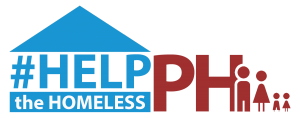 Believing that unified and active compassion is an effective intervention to address the plight of homeless families, the Department of Social Welfare and Development (DSWD) today launched its advocacy campaign #HelptheHomelessPH, with the theme, “Responsableng tulong ang kailangan ng mga taong nakatira sa lansangan!”
Believing that unified and active compassion is an effective intervention to address the plight of homeless families, the Department of Social Welfare and Development (DSWD) today launched its advocacy campaign #HelptheHomelessPH, with the theme, “Responsableng tulong ang kailangan ng mga taong nakatira sa lansangan!”
#HelptheHomelessPh is an advocacy campaign which aims to encourage various sectors to respond to the prevalent social problem of homelessness. There continues to be an increasing number of families and individuals calling the streets their home.
Through the campaign, DSWD intends to raise public awareness on the actual situation of homeless families and the reasons why they stay on the streets. It is also a call to action for everyone to take part in addressing the concerns of this vulnerable sector.
DSWD Officer-in-Charge Emmanuel Leyco stated, “Para lubusang matugunan ang problema, kailangan nating kilalanin ang mga walang tahanan at alamin kung bakit at ano ang dahilan at sila ay nasa kalye. Hindi tama na basta na lang silang akusahan na mga tamad kaya sila nasa kalye o biktima sila ng mga pangyayari o sirkumstansya (To fully respond to the problem, we need to get to know the homeless and determine the reasons why they are on the streets. It is unjust to simply dismiss them as lazy and that this is the primary reason why they are on the streets. Many of them are victims of circumstance).”
OIC Leyco added that DSWD staff recently talked to a number of homeless families to get further insight into this social issue.
A mother of three girls, Rizza, 32, narrated, “Kasama kami sa na-demolish ang bahay diyan sa NIA kaya dito kami sa sidewalk nakatira ngayon. Sa gabi, dinadala ko ‘yong dalawang anak ko sa tinitirhang kuwarto ng aking ina para maiwas sila sa lamig ng gabi (Our house was part of the community demolished near NIA, which was why we were suddenly forced to stay on the sidewalk. I take my two young girls to my mother’s small room at night to ensure their protection and safety).”
Rizza tends a small store in their makeshift home on the sidewalk while her husband, Jodel, drives a tricycle for a living.
Jodel shared, “Kumikita kami ng hanggang P300 kada araw, pero ginagamit namin yung pera sa pagkain, pag-aaral ng anak ko at pagbigay tulong sa nanay ni Rizza na maysakit. Mahal ang paupahan kaya dito na lang kami sa sidewalk (We earn up to P300 a day, but we budget it for food, my child’s schooling, and to help Rizza’s sick mother).“
Aling Juanita, 48, shared that she and her husband live in a kariton (cart) along with their two pet dogs since they could not afford to rent a room much less a house. Her husband used to work as a street sweeper, but the job was only temporary. She earns a living selling candies and cigarettes using their kariton as a mobile store, while her husband scavenges for recyclable materials from garbage piles.
Other homeless families shared that they were victims of human-made and natural disasters, while others were laid off from work due to economic shocks. A few others who are elderly and ill individuals were abandoned by their families and were also forced to live on the streets.
Through the #HelptheHomelessPH campaign, the Department invites all sectors to be part of efforts to bring attention to the plight of the homeless and to extend responsible help to them, even one family at a time.
DSWD, however, reiterated that alms giving especially on the streets is not aligned with responsible help as it only poses more dangers to the homeless families.
OIC-Leyco said, “We have programs for homeless families like the Modified Conditional Cash Transfer (MCCT) and the Comprehensive Program for the Homeless and Sama Bajau, but the Department cannot help all homeless Filipinos on its own given our limited budget and mandate. We appeal to various groups and private citizens to take part in this humane campaign to help the poorest families the responsible way. Let us help the homeless by sharing our time, effort, and resources. Makibahagi at Magbahagi.”
OIC Leyco cited some activities to help the homeless in the right way such as organizing gift-giving, medical mission, feeding program, story-telling and art sessions for children, among many others. ###


